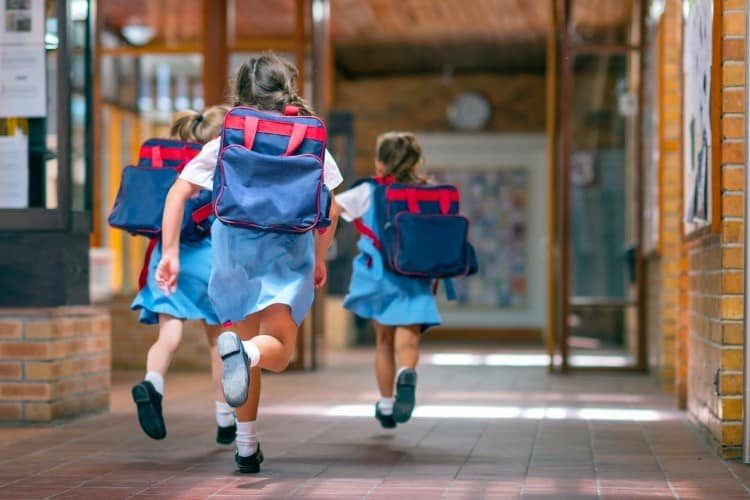
The Wisconsin Supreme Court on Friday vacated a local health officer’s order closing schools to prevent the transmission of COVID-19, finding that the order was “both statutorily and constitutionally unlawful.”
Janel Heinrich, public health officer of Madison and Dane County, had no “power to close schools” in the first place, the court wrote in a 4-3 decision. Even if she did, the court averred, she unnecessarily infringed on the religious freedom of parents sending their children to Christian schools.
Heinrich issued an order closing schools last August, just before the start of the school year. Soon afterward, three lawsuits seeking Wisconsin Supreme Court review of the order were brought by Christian schools, parents, and school associations.
In September, the court issued a temporary injunction against Heinrich’s order, allowing private schools to operate for almost the entire school year. The court heard arguments in the case in December.
In its decision, the court maintained that the Wisconsin legislature had reserved to the state health department, not local officials, the power to close schools. In fact, the court noted, as lawmakers debated a 1919 bill expanding local health officials’ authority, they pointedly omitted language allowing them to “close schools” — an omission that was never undone in subsequent revisions of the law.
Heinrich argued that one law’s granting local health officers the authority to take “reasonable and necessary” measures to stop the spread of communicable diseases gave her the power to close schools as she saw fit. The court disagreed.
{modulepos inner_text_ad}
“If local health officers’ authority to take measures ‘reasonable and necessary’ included the extraordinary power to close schools, then the Legislature’s specification of particular powers, such as the power to ‘inspect schools,’ would be superfluous,” penned the court. “The power to take measures ‘reasonable and necessary’ cannot be reasonably read as an open-ended grant of authority.”
The court could have stopped there, but it chose also to address the matter of whether Heinrich’s order unconstitutionally burdened religious liberty. The Wisconsin constitution, it observed, afforded even greater protections for religious freedom than did the U.S. Constitution, declaring, “The right of every person to worship Almighty God according to the dictates of conscience shall never be infringed; … nor shall any control of, or interference with, the rights of conscience be permitted.”
The plaintiffs in the case argued that in-person schooling was “a vital part of the exercise of their religion,” wrote the court. Parents said that communal religious activities that take place in Christian schools, such as prayer and communion, were essential for their children’s spiritual formation. The schools concurred that in-person instruction was critical to their missions.
Yet Heinrich’s decree “did not merely burden academic schooling; it burdened the exercise of religious practices,” the court said. “While Heinrich allowed schools to use their premises for child care and youth recreational activities, the government barred students from attending Mass, receiving Holy Communion at weekly Masses with their classmates and teachers, receiving the sacrament of Confession at school, participating in communal prayer with their peers, and going on retreats and service missions throughout the area.”
Furthermore, Heinrich’s order did not apply equally to students of all ages. Only students in grades three through 12, who are at virtually no risk from COVID-19, were prohibited from attending school. Younger students and those in colleges and universities were free to obtain in-person instruction as their institutions desired. Thus, the court concluded, Heinrich could have achieved her objectives through less-restrictive means.
Heinrich, naturally, said she was “extremely disappointed” with the court’s decision. “Unnecessary, preventable illness may certainly occur as a result of this ruling,” she claimed — never mind the fact that, according to the Catholic World Report, “there were no large-scale outbreaks of COVID-19 in the schools.”
The plaintiffs, on the other hand, were thrilled.
“I am deeply grateful that the Supreme Court has now definitively held that Dane County acted unlawfully and unconstitutionally in attempting to close our schools last fall to in-person instruction, including religious instruction,” said Misha Tseytlin, attorney for some of the schools. “The Wisconsin Constitution gives broad protections to the religious liberty of Wisconsinites, and the Supreme Court now made clear that those protections apply in both good times and challenging times.”


